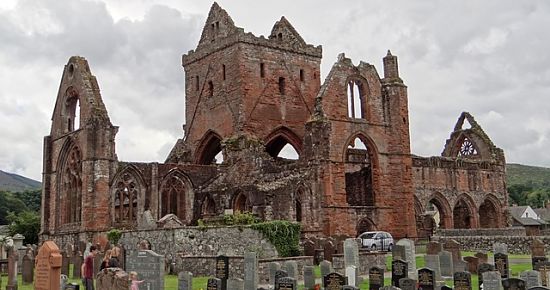 If Jesus was prophetic then the church that follows him is prophetic. If Jesus was a prophet, then the followers of Jesus are to embody a prophetic message in how they live. In fact, it was a characteristic of prophets to “embody” their message in actions (often called prophetic symbolic actions), actions like Isaiah lumbering around naked, Hosea marrying a prostitute, or Jeremiah burying a soiled loincloth.
If Jesus was prophetic then the church that follows him is prophetic. If Jesus was a prophet, then the followers of Jesus are to embody a prophetic message in how they live. In fact, it was a characteristic of prophets to “embody” their message in actions (often called prophetic symbolic actions), actions like Isaiah lumbering around naked, Hosea marrying a prostitute, or Jeremiah burying a soiled loincloth.
How then can the church embody its message? How can it embody the following four characteristics?
Luke Timothy Johnson, in his new book Prophetic Jesus, Prophetic Church, suggests the following four elements of as the way the church can embody the prophetic message of Jesus:
1. Poverty
2. Itinerancy
3. Prayer
4. Servant leadership
I am convinced Johnson is right in seeing these actions as freighted with symbolic meaning for Jesus, the earliest churches and for us today. I’m not convinced these are analogous to the prophetic symbolic embodiments. Those were dramatic, one-off, exaggerated gestures. These are settled dispositions. Having said that, however, let’s get on with seeing what these four actions can say to the church today.
Johnson sketches each of these themes in Jesus (Luke) and then in the continued life of Jesus in the churches (Acts). He did not choose these in order to poke a thumb in the eye of America or American churches; he picked these four because these are four major embodiments of the kingdom in Luke-Acts.
Jesus advocated for the poor as one of the poor, and the foxes have holes and the Son of man has no place for his head is a good text (Luke 9:58). This connects to the theme of itinerancy in Jesus’ ministry and in the ministry of his followers. Jesus is on the move, and Luke 9:51 is a good text. Luke emphasizes Jesus’ prayer life: Luke 3:21; 6:12; 9:28; 22:32,41-44; 23:34; 23:46; cf 11:5-13. And Jesus embodied servant leadership: healing, hospitality, feeding miracles, and esp 9:48 that the greatness is service and 22:29-30 at last supper when Jesus counters his form of leadership with that of the Gentile rulers.
These themes are shown embodied in the community in Acts, and the obvious places to begin are 2:42-47 and 4:32-37. The itinerancy theme is perhaps stretching it because the evidence suggests a combination: apostles, et al, traveling while others are fixed in their local communities and churches. Prayer is common in Acts. Leadership: Acts 6:1-6 but esp when the apostles deflect congratulations (e.g., Acts 10:25-26; 14:11). He sees the whole narrative that leads to Acts 15 as showing the surrender of the Jewish apostles to the work of God among Gentiles.
Today, what about today?
1. Are our prayers expressing our prophetic calling or are they consumed with nothing more than praise and personal petition? (Both goods, acc to LT Johnson, of course.)
2. Is our life an embodiment of the prophetic poverty of Jesus and the early churches or is it a life consumed by possessions and more possessions? He (as a Catholic) critiques the glittering gold and grandeur of the Vatican; but he’s not afraid to point at the Crystal Cathedral and other Christian symbolic places where wealth is embodied.
3. Is our life locked in or capable of motion? He knows of missionaries — Benedictines, Franciscans, Wesleys, missionary movement — but what of ordinary folks? Are we responsive to the Spirit?
4. Do we serve as leaders? Do we take “minister” for what it means? Or do we see ourselves being served? Are we privileged, entitled, do we have expectations of others?











